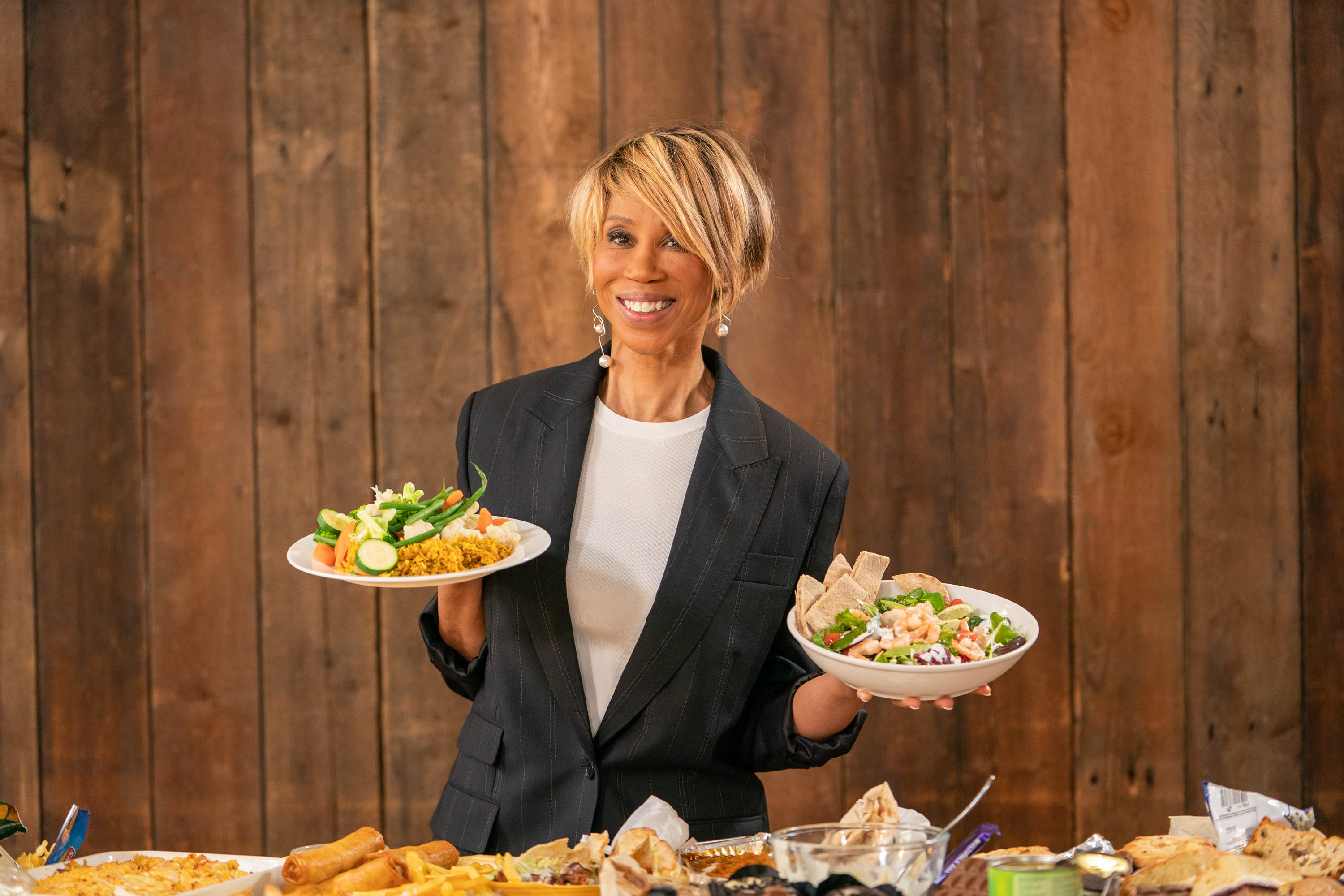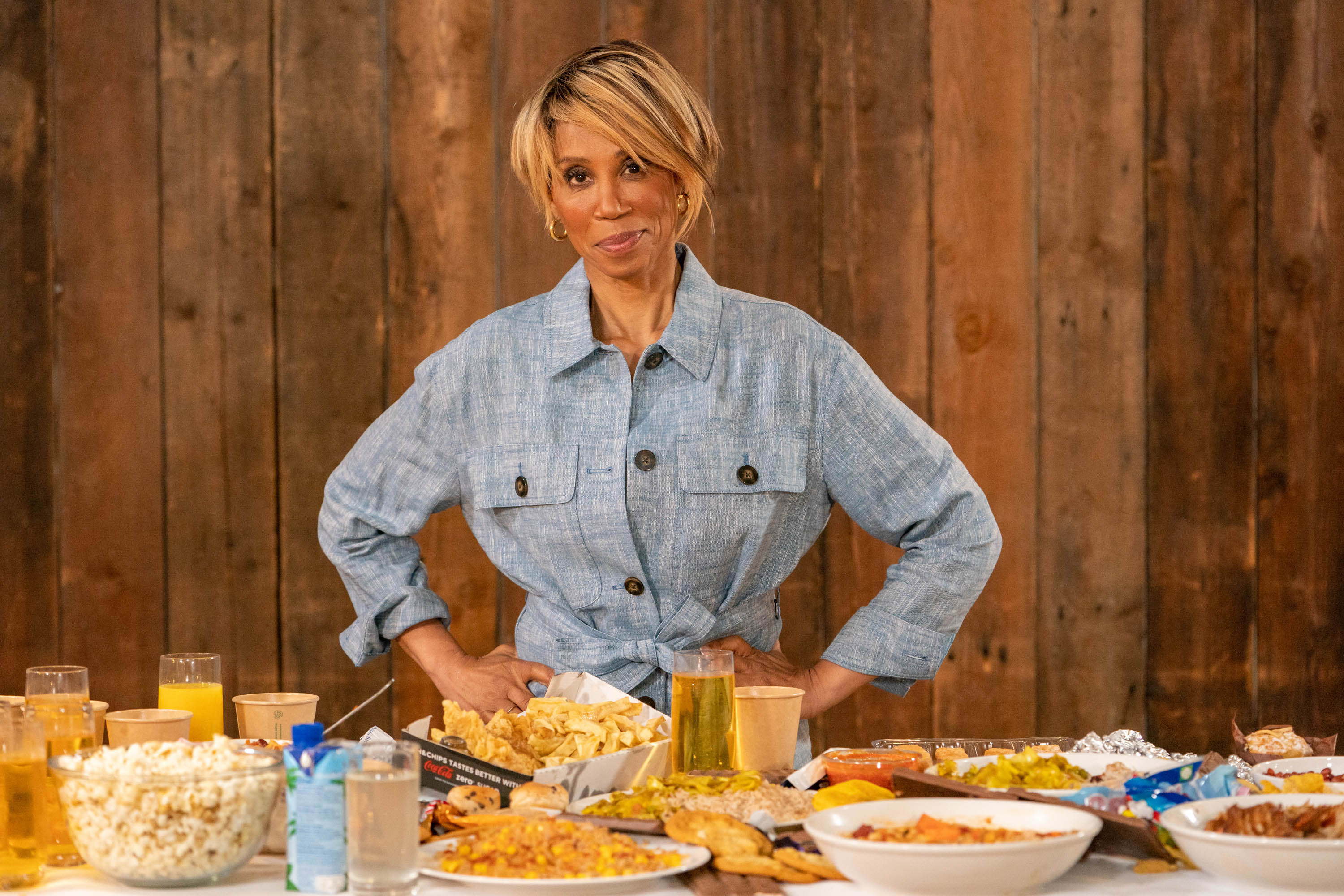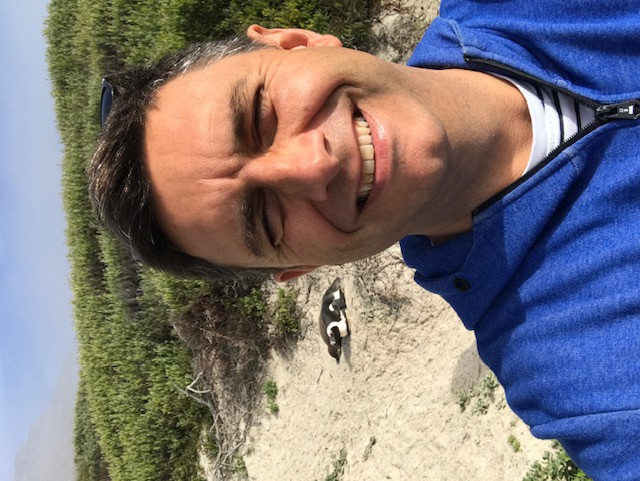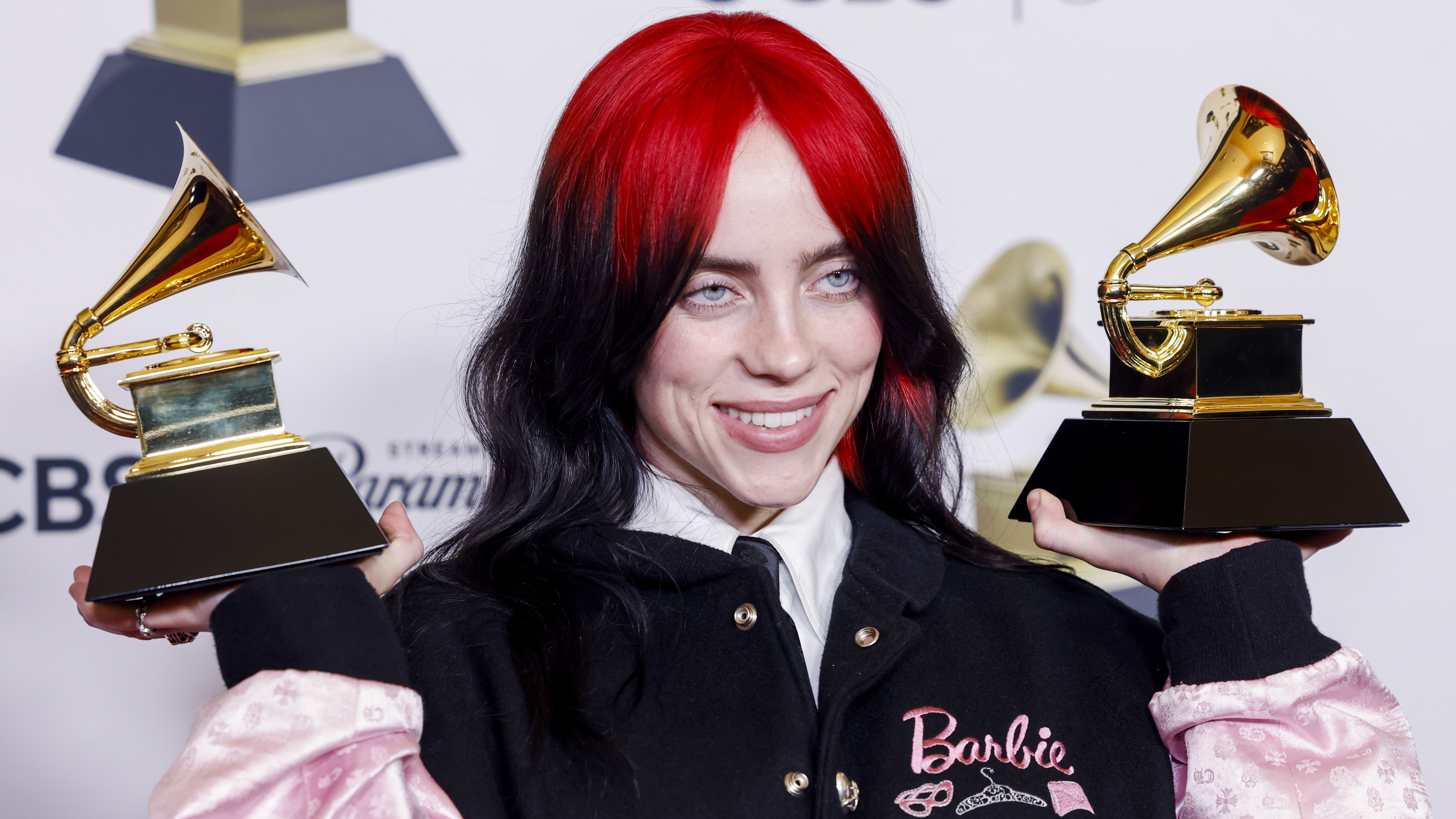'You Are What You Eat' presenter Trisha Goddard guides us through her new series: 'Our bodies are like cars!'
Trisha Goddard reveals what to expect in 'You Are What You Eat' on Channel 5.

When You Are What You Eat first aired on Channel 4 in 2004 it proved a huge hit, and now, after 14 years off screen, the show that helps people overhaul their unhealthy diets is back but now on Channel 5. It's also been with Trisha Goddard replacing original presenter Gillian McKeith.
"Our bodies are like cars: fill it with the wrong fuel, leave it parked in one spot for too long and it’s going to start falling apart," says host Trisha who starred in Dancing On Ice in 2021 and also took part in Channel 5 documentary series 1000 Years A Slave.
First to be featured in the new six-part series are 37-year old sports coach Adam and 53-year-old Jackie, an insurance broker who also works as a security guard. "Jackie has a very busy lifestyle," says Trisha. "She’s got used to eating processed and packaged foods. Adam has had 15 operations on his knee which has been his stumbling block to getting fit and he’s become reliant on takeaways as comfort food."
In episode 2 we meet overweight Helen who's at an all-time low when she starts the programme’s eight-week plan. A secret binge-eater, the 48-year-old has found herself in a vicious circle. It seems the more weight she gains, the worse she feels and the more she eats. But with the help of Trisha and her team, the transformation is remarkable. Also needing some help is 28-year-old Leonie.
Each week the contributors are given help, advice and a workable new regime by Dr Amir Khan (GPs: Behind Closed Doors) nutritionist Kate Llewellyn-Walters and microbiologist, Professor Lindsay Hall, who’ll be doing the infamous ‘poo test’ to check on gut health. Trisha monitors their progress as they implement the changes and re-joins them after eight weeks to see the results.
"There’s nothing more uplifting than finding how to create the best version of yourself," says Trisha. "Working with people who want to improve the way they feed themselves, body and soul, is really exciting."
'You Are What You Eat' air date
You Are What You Eat is a six-part series hosted by Trisha Goddard which launches on Channel 5 on Friday Jan. 5 at 8pm. After that release date, each episode will then become available weekly on Channel 5 and also on streaming service My5.
The latest updates, reviews and unmissable series to watch and more!

Interview: Trisha Goddard on hosting 'You Are What You Eat'
What excited you about hosting the new series of You Are What You Eat?
Trisha Goddard says: "It's very me! I've always been interested in nutrition, mental health, fitness and getting the most out of my body, even more so post breast cancer. I can see the impact of food on my body quite quickly because I run every day, I ice skate four to six hours per week and I hike on Sundays for five to ten miles across really rugged, mountainous country. Plus, I work out with weights three or four times a week. So, I can see very quickly what food does to me, and whether it allows me to achieve anything the next day."
Did you enjoy filming in the UK again for this series?
Trisha says: "Yeah, I'm backwards and forwards to the UK all the time but absolutely. For quite some time I worked in the States being based in the UK, and now it’s the other way round, but I love working back in the UK. I absolutely clicked with Dr Amir too, we had so many similarities and shared interests and we’re still mates. We're both runners, so we were quite competitive with each other on what times we were running, and sometimes we’d run together at daybreak."
You do a lot of work on mental health - and it’s a big factor for the contributors on the series, isn’t it?
Trisha says: Yes, 99.9% of people are affected by emotional eating - food is naturally a very emotional thing for people. We associate happy times with food, for example we think of Christmas turkeys and old-fashioned sweet shops take us back to our childhood. If you feel down you want to eat chocolate, and the smell of crusty white bread in the oven emotes so many things - food and emotion is inextricably linked. I think there's a dearth of knowledge about food, and even if you have the information, not many people apply it to real life and their emotions - you can know that you’d be better off having an apple instead of a bar of chocolate, but if you're depressed and down then you ain't reaching for an apple!"
Did you find yourself getting emotionally invested in some of the stories on the show?
Trisha says: "Yes and no. I've been involved in mental health for decades and I know that me getting too emotionally invested doesn't help them, but I can empathise, see what's happening and hear how they feel. That's the most important thing - for me to take on how they feel and think how I can convert that line of thought into good habits. People will open up to me and talk to me about how they’re feeling, and I'm honoured and grateful that they feel safe enough to do so. I love listening to their stories. For many of them it's just about being heard and I love being a part of that, it’s special. When someone tells me about what's going on in their life, I'll always run it as a movie in my head and it affects me like anyone sitting down watching a very emotive movie. I'm very annoying to watch films with by the way, because I give advice to all the characters!"
Do you hope viewers at home will adopt healthier habits after watching You Are What You Eat?
Trisha says: "They will because I did, absolutely! There is an area that I did not know about, which is the difference in diets for black people. I didn't realise that ethnicity has such a big impact on health outcomes and the menopause is experienced differently by black women. We had one lady on the show who is black and menopausal and her experience is different from a white woman with menopausal symptoms. I'm into fitness, I've had personal trainers and spoken to doctors, but I had never heard most of this stuff before, so you bet people will take stuff away. Also, the fact that we need to actively change what we eat as we get older because of changes in hormone levels and bone density."
What changes have you made as a result of hosting the show?
Trisha says: "I've upped my fibre because I didn't realise about gut health, and I don't think most people understand how it has an impact on whether you lose weight, keep weight on, where you store your weight, all of those things. It really is at the centre of everything. I've seen a difference by changing my diet in the morning - I just used to have healthy cereal but now I have a more fibrous cereal, fruit fibre in citrus fruit, like a grapefruit today, and half a tub of low-fat Greek yoghurt for my bones. I love doing anything where I learn something and I definitely learned a lot from doing this show."
How do you manage to be so disciplined with your diet and exercise?
Trisha says: "I’ve got a sweet tooth, but it's about making good habits, it's just part of my life now. I get up every morning and put on my gym gear straight away, so I feel like a twit if I don't do some exercise in it. I very rarely use a trolley in a supermarket, instead I use a basket. It means that I have to really think twice about what I buy and what I can carry back to the car. It also means that I only shop for a few days at a time, and you make wiser choices - you're not going to buy multipacks of frozen meals if you've only got one basket. Habits like that I have built it into my lifestyle. Even if you've got small children who need a trolley seat, just put a basket in the trolley and work from that. I walk to meetings if I can, or I get the cab to drop me off halfway and power walk the rest. In London, I get off a bus stop earlier and I walk up the escalators at the underground. Even if you don't go to a gym, you can make these habits. I don't even think twice now when I come to escalators - once you start walking you've got people behind you and you can't stop!"
Why do you think Britain struggles so much with obesity?
Trisha says: "Brits eat more packaged food than anywhere in Europe*. There are lots more ready meals on sale in British supermarkets than where I live in the States. America has frozen pizzas, but not all of the instant shepherd’s pies and fish pies. There are so many brands of instant porridge too, which I just make in the slow cooker. We've become lazy at cooking, and fewer people know how to prepare fresh fruit and vegetables. When I was at school, we had home economics lessons and we had to learn how to cook - our teacher who grew up during the war used to come round and check the width of the potato peel when we were peeling them! But we learned to cook everything from scratch and I don't think people do that now. When we did the show, we saw hard-working parents, who think takeaways and ready meals are quicker to make than starting from scratch, and that's what their kids see and learn. I think nutrition needs to be taught via cooking lessons, because I reckon very few children actually know how to boil an egg. I swear by slow cookers - everyone thought I was mad on You Are What You Eat, because I kept banging on about them! But when my kids went to University, I bought them both a slow cooker and now they say it’s great because they all buy a couple of potatoes, or a carrot and a cheap piece of meat and there’s a hot stew waiting for them when they get home. It takes no time and it’s cheap, but we're not taught that. It's a lack of education. It's no good reading about this stuff in magazines when you're an adult because the bad habits are already there and are much harder to change."
Are you confident that the contributors will be able to stick to the changes they’ve made?
Trisha says: "Yes, the whole thing about You Are What You Eat is that it's not about a quick fix, it's about life changes, and for some people it’s just tweaks. Some of them had to find something that spoke to them for fitness, because we always think of fitness as going to the gym, but it's not necessarily, it can be hiking or anything, it's just moving more. It was about making changes to lives, some small and some large, and sticking to them, so it makes me really happy to think that we've been part of doing that."
- Best Channel 5 documentaries on My 5
- Wonderful Wales with Michael Ball
- Best BBC documentaries
- Extraordinary Escapes with Sandi Toksvig
- Blitz Spirit with Lucy Worsley
- Bear Grylls Wild Adventure
- Attenborough Life in Colour
- Jamie: Keep Cooking Family Favourites
- Best Channel 4 documentaries
- Fishing Scotland's Lochs and Rivers
- Robson Green: Coastal Fishing

I'm a huge fan of TV so I've found the perfect job, writing about telly shows and interviewing major television, film and sports stars for over 30 years. I'm currently the TV Content Director on What's On TV, TV Times, TV and Satellite Week magazines plus contribute to Whattowatch.com. I previously worked on Woman and Woman's Own in the 1990s. Outside of work I swim every morning, support Charlton Athletic football club and get nostalgic about TV shows Cagney & Lacey, I Claudius, Dallas, Tenko and I'm quite partial to a bit of Little House on The Prairie. I'm totally on top of everything good coming up too, and love newer shows such as The Day Of The Jackal, This is Us, Hacks and anything Dexter.

